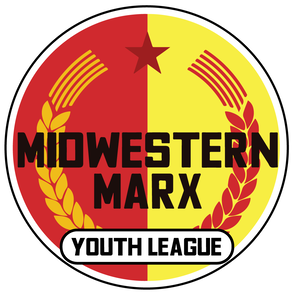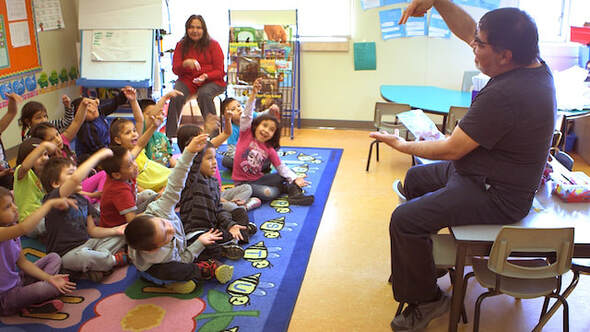Shmon’s Thesis and Argumentation In a 2021 opinion piece for CBC News, Métis educator Karon Shmon argued that the stagnant state of the reconciliation process is, in large part, due to lack of education, and the sometimes-flagrant miseducation of the non-Indigenous Canadian population on the subject of Indigenous issues. She writes that the future of reconciliation is dependent on the proper education of Canadians: “helping individual citizens come to grips with Canada’s true history is the first step” (Shmon). The importance of reconciliation is widespread in that it is not a matter specifically between Indigenous peoples and the federal government, but an encompassing issue which must involve all Canadian people in its being carried out. Essentially, reconciliation cannot be left to a vague “someone else” in the minds of individuals; the magnitude of some of the Calls to Action published in the final report by the Truth and Reconciliation Commission lead some individuals to think that reconciliation is someone else’s job, or that it is a purely political matter that the government alone will handle (Shmon). The widespread apathy and ignorance toward reconciliation results from non-Indigenous Canadians’ misunderstanding of Indigenous issues, and must be combatted with education. Shmon points out the tenth Call to Action in the Truth and Reconciliation report, which calls on the federal government to “draft new Aboriginal education legislation with the full participation and informed consent of Aboriginal peoples” (Truth and Reconciliation Commission of Canada, 2). It aims to achieve this goal by “providing sufficient funding to close identified gaps within one generation” (2). Most Indigenous individuals would interpret this as a call to close the educational achievement gap in primary and secondary schools which disadvantages Indigenous students as compared to their white peers (Shmon). Most non-Indigenous people, however, would likely interpret this Call to Action as closing the gap in knowledge on Indigenous issues in the Canadian education system, which leads to a lack of understanding of Indigenous history and reconciliation in the minds of non-Indigenous Canadians (Shmon). This interpretation of the tenth Call to Action illustrates the fact that many Canadians have a lack of understanding and confidence in their own ability to participate in reconciliation. This lack of knowledge is due to “the insufficient and one-sided view of Canada’s history presented at all levels of the education system” (Shmon). “The majority of Canadians have gaps – first in knowledge, and second in understanding the impact of colonialization and oppression on the Indigenous peoples who live in what we now call Canada” (Shmon). These gaps make it challenging for people educated on Indigenous history to have difficult conversations with those who are uneducated on the subject, as they must first explain the entire history of Indigenous oppression before they can even come to the topic of reconciliation (Shmon). For this reason, early education on the topic which carries all throughout elementary and high school would establish enough knowledge about Indigenous peoples for reconciliation to be a universally (nationally) participated-in task. Other individuals who have already finished their formal education also need to take steps toward continued Indigenous-oriented education of their own, such as reading the TRC report and/or other Indigenous-related materials. Education as the first step to reconciliation would rid Canadians of the idea that it is not up to them, that they are incapable of being involved in the necessary change (Shmon). Lack of Education on Indigenous IssuesThe state of affairs between Indigenous and non-Indigenous peoples in Canada, characterized by tension and general difficulty/misunderstanding, are founded in large part on how the educational institutions of the country teach Indigenous issues (Vowel, 175). That is, the false or romanticized aspects of Canadian history which are taught (and the true aspects of Canadian history which are not taught) culminate in a gross misunderstanding of Indigenous peoples within the settler population of Canada, which contributes to the state of discomfort and stagnancy surrounding reconciliation. Multiple Calls to Action within the TRC report address the ways in which Indigenous issues have been taught in schools, and how they must be reformed in order to improve societal relations between Indigenous and non-Indigenous peoples in Canada, which is a component of reconciliation (Vowel, 175). This ‘tension’ between Indigenous and non-Indigenous Canadians must be ended through educational relationship-building, as “reconciliation is a term that refers to peaceful coexistence” (Aitken). According to Vowel, most of Canada’s high school programs (at the time of her writing) had no mandatory Indigenous Studies courses, and only six provinces even offered elective Indigenous Studies courses (Vowel, 177). Nor does elementary school cover Indigenous issues properly: according to a study done by KAIROS (Canadian churches working together for peace and justice), which analyzed the degree to which provincial elementary education boards had addressed the TRC’s Call to Action 62.1 in their curriculums, not one of the provinces is deserving of “top marks,” and only the Prairie Provinces even “passed” (177-178). Saskatchewan, which scored highest, still had not institutionalized the teaching of certain “basic aspects” of Indigenous issue education (178). The general deficiency of proper education regarding Indigenous issues as described by Vowel speaks truth to Shmon’s understanding of the lack of confidence and understanding informing the absence of commitment to reconciliation among white Canadians. Where proper education is missing, so too is the will to reconcile justice in Canada missing; education is therefore one answer to the question of non-Indigenous complacency. Progress to Further Restorative Education According to a study into the Indigenous education policy frameworks of the provincial and territorial school systems, which arose in response to the TRC Calls to Action, there is progress being made in reforming Canadian elementary and secondary education systems (Wotherspoon, 1). Although this study critically examines the new policies, it does afford them some general praise: “our analysis of policy frameworks and related guidelines reveals considerable movement towards greater incorporation of Indigenous content in both school curricula and teacher education across the country” (16). The study also recognizes that education is the force by which Canadians can preliminarily address “damaging colonial legacies of schooling” (16). This is in agreement with Shmon’s article, saying that education is an initial step by which the whole structure of injustice against Indigenous peoples in Canada can be challenged. Though there are still issues in Canada’s schooling systems even after these initial reforms have been introduced, Wotherspoon acknowledges in the above quotations that they are changing for good. The Effects of Education on Indigenous Issues Perhaps the most preliminary action of reconciliation in the school systems of Canada is the education of teachers and instructors on the topics which need to be addressed in Canadian schools and universities. Teachers have the potential to facilitate change and promote the goals of reconciliation in classrooms (Aitken). An academic study was carried out and written on by Avril Aitken and Linda Radford, in which educators were presented with various readings describing the intricacies of Canada’s true history regarding colonialism and relations to Indigenous peoples and their disadvantage. The subjects were found to be widely undereducated on the topic, remarking on their own lack of knowledge on the subject as “completely oblivious;” but despite their own lack of previous education, most of the participants were motivated by what they read to “do something” (Aitken). They wanted to use their newfound knowledge on the historical and contemporary conditions of Indigenous peoples in Canada to be part of the change to that ongoing mistreatment and dispossession, either through passing on that knowledge to their students or by taking part in reconciliation in other ways (Aitken). Educators constitute one of the most important pieces of the system of reconciliation because they are the initiators of the subject in the minds of their students, who will then go on to be either complacent to the indecency of Indigenous peoples’ treatment within Canadian settler society, or active in the struggle against the ongoing injustice. The result of education on Indigenous issues is a populous which is more committed to restorative justice, theoretically cementing Shmon’s argument that education is the first step towards greater reconciliation in Canada. A separate research experiment and general practice was run by a partnership of Anishinaabekwe and white settler teachers which sought to educate Canadian teachers and students on Indigenous issues by challenging preconceived notions about colonialism and Indigenous concepts (Korteweg). Where it was implemented, teachers and students participated in Indigenous community learning, in celebrations, ceremonies, or protests; there was a shift in the group “towards cultural humility, embodied holistic learning, and empathetic development,” and the practice led teachers to “more Indigenous-respectful pedagogies and developing relationships with Indigenous students” (Korteweg). This result of the experiment/practice proffers the conclusion that the very existence of proper Indigenous education is the simplest, most essential component to actual praxis regarding reconciliation. Where the Aitken-Radford study theoretically proved Shmon’s thesis in the subjects’ desire to incorporate proper Indigenous issues into their curriculums (Aitken), the Korteweg-Fiddler study proved Shmon’s thesis in practice, as the implementation of Indigenous pedagogy resulted in actual small-scale acts of reconciliation (Korteweg). The ongoing studies regarding education as a means to achieving reconciliation in Canada effectively prove that it works; where these often small-scale research projects are implemented, there is noticeable change in attitudes and actions regarding reconciliatory movement within the subjects of those studies. The effectiveness of these studies validates the necessity and call for greater educational reform in Canada to include widespread teachings about Indigenous concepts and reconciliation. Bibliography Aitken, Avril, and Linda Radford. "Learning to Teach for Reconciliation in Canada: Potential, Resistance and Stumbling Forward." Teaching and Teacher Education, vol. 75, 2018, pp. 40-48. Korteweg, Lisa, and Tesa Fiddler. "Unlearning Colonial Identities While Engaging in Relationality: Settler Teachers' Education-as-Reconciliation." McGill Journal of Education, vol. 53, no. 2, 2018, pp. 254-75. Shmon, Karon. "Education is a key component to advancing reconciliation." CBC News, 2021. https://www.cbc.ca/news/canada/saskatchewan/opinion-karon-schmon-education-key-reconciliation-1.6218534 Truth and Reconciliation Commission of Canada. "Truth and Reconciliation Commission of Canada: Calls to Action." 2015, pp. 2. https://www2.gov.bc.ca/assets/gov/british-columbians-our-governments/indigenous-people/aboriginal-peoples-documents/calls_to_action_english2.pdf Vowel, Chelsea. "Indigenous Writes: A Guide to First Nations, Métis & Inuit Issues in Canada." Highwater Press, 2016, pp. 175-178. Wotherspoon, Terry, and Emily Milne. "What Do Indigenous Education Policy Frameworks Reveal About Commitments to Reconciliation in Canadian School Systems?" International Indigenous Policy Journal, vol. 11, no. 1, 2020, pp. 1-29. AuthorNolan Long is a Canadian undergraduate student in political studies, with a specific interest in Marxist political theory and history. Archives March 2022
0 Comments
|
Details
AuthorWrite something about yourself. No need to be fancy, just an overview. Archives
February 2023
Categories
All
About the Midwestern Marx Youth LeagueThe Midwestern Marx Youth League (MMYL) was created to allow comrades in undergraduate or below to publish their work as they continue to develop both writing skills and knowledge of socialist and communist studies. Due to our unexpected popularity on Tik Tok, many young authors have approached us hoping to publish their work. We believe the most productive way to use this platform in a youth inclusive manner would be to form the youth league. This will give our young writers a platform to develop their writing and to discuss theory, history, and campus organizational affairs. The youth league will also be working with the editorial board to ensure theoretical development. If you are interested in joining the youth league please visit the submissions section for more information on how to contact us!
|


 RSS Feed
RSS Feed